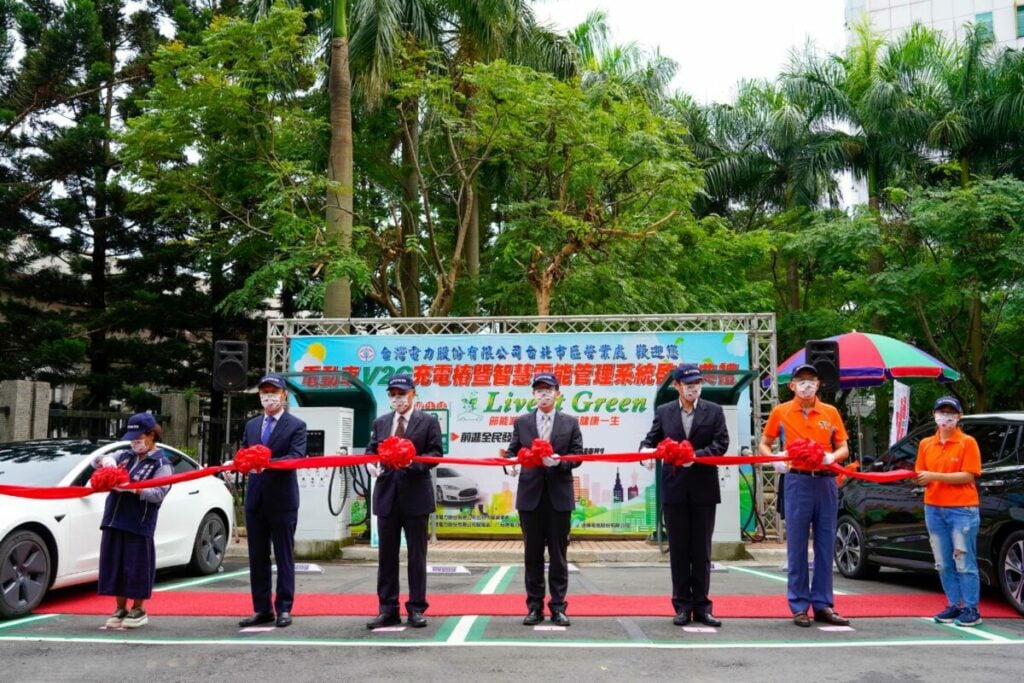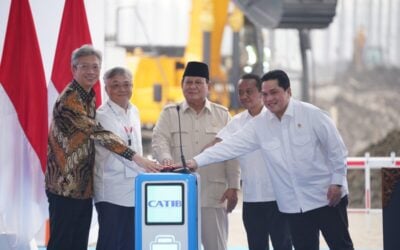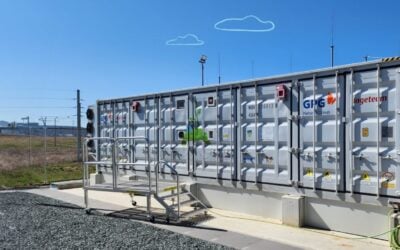
US vehicle-to-grid (V2G) technology startup Nuvve has continued its push into the Asian market, entering negotiations for a project planned by Taiwan’s grid operator and utility.
State-owned electric power company Taipower has set aside a plot in the city of Hsinchu to host its advanced electric vehicle (EV) charging hub. It will feature 325 parking spaces, equipped with a mix of bidirectional vehicle-to-grid chargers serving 95 of those spaces and a further number of V1G smart charging units.
Enjoy 12 months of exclusive analysis
- Regular insight and analysis of the industry’s biggest developments
- In-depth interviews with the industry’s leading figures
- Annual digital subscription to the PV Tech Power journal
- Discounts on Solar Media’s portfolio of events, in-person and virtual
V2G technology essentially turns EV batteries into stationary energy storage assets when parked and not in use. Energy stored in the vehicle batteries flows back to the grid when needed, and the aim is generally to build scale by aggregating the capabilities of many cars.
It’s much the same principle as working with residential virtual power plants, where the aim is to aggregate dozens or hundreds of distributed energy resources (DER) to make resources akin in scale to centralised power plants.
The Taipower project in Hsinchu has several aims, including the most obvious of putting EV charging facilities in the local metropolitan area. It will also enable the integration of solar power generation into the charging infrastructure, enable Taipower to assess and certify different kinds of charging equipment and generate real-time market data for Taiwan’s government and policymakers.
Taipower set up two V2G charging demonstration sites in Taipei and Kinmen in 2020, with vehicle batteries discharging directly into the transmission grid. A year later, it partnered with electric bike company Gogoro to create a battery exchange station equipped with VPP capabilities.
Taiwan move follows December BESS deal in Japan for Nuvve
Nuvve is partnering with Taipei-headquartered renewable energy developer, microgrid and battery specialist e-Formula on the project. Nuvve will act as technical project manager and service provider while e-Formula will be the overall project lead.
Nuvve’s proprietary V2G platform will deliver grid services to Taipower from parked vehicles, and the company will deploy bidirectional and unidirectional charging units ranging from 11kW to 150kW. e-Formula will deploy stationary battery storage at the site, to also participate in Taipower ancillary services and other electricity market opportunities.
Although the partners have been “awarded” the project, Nuvve said, negotiations on contracts still need to be concluded, which the California-headquartered tech startup said is anticipated to take place in March. Once that deal is done, the project’s operational lifetime is planned to last around 20 years, according to Nuvve.
While much of Nuvve’s activity has been based in its US homeland, particularly in California, the company has been on a drive to expand internationally over the past year or so.
In February 2023, Nuvve said it would be managing 40MW of EV charger and battery storage resources in Norway and Denmark, playing their stored energy into Nordic frequency regulation markets.
More recently, and geographically much closer to the new project, Nuvve said in December that it will be managing 30MWh of grid-connected battery energy storage system (BESS) assets in Japan for trading company Toyota Tsusho and a utility in the Chubu region of central Japan. In that instance, the company would be transferring energy and power management technologies and expertise over to the stationary battery space, Nuvve said.
Meanwhile, Taiwan has become a market of interest for many energy storage companies, beginning with Taipower’s introduction of frequency response markets in 2018. About a week ago, BESS system integrator Fluence announced the start of commercial operations at a 60MW/80MWh stationary battery project with Taipower.
Energy-Storage.news’ publisher Solar Media will host the 2nd Energy Storage Summit Asia, 9-10 July 2024 in Singapore. The event will help give clarity on this nascent, yet quickly growing market, bringing together a community of credible independent generators, policymakers, banks, funds, off-takers and technology providers. For more information, go to the website.






